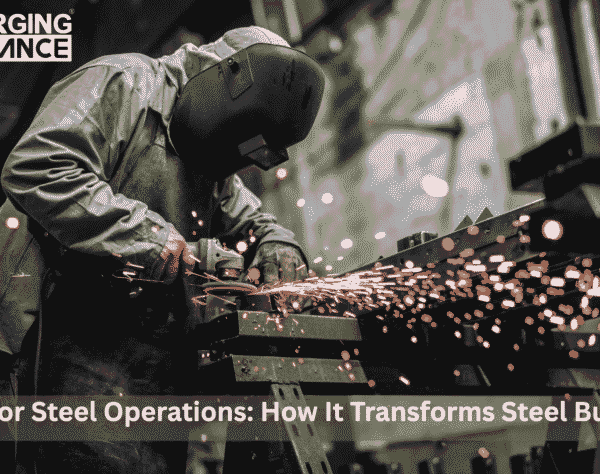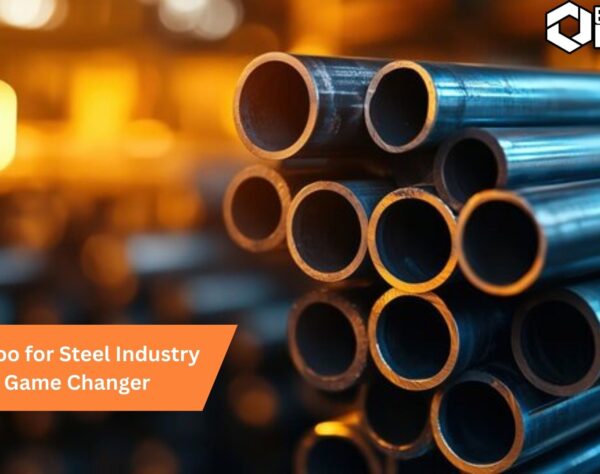
Steel Industry Success: Powered by Salesforce CRM

Salesforce is Shaping the Future of Steel Industry
The steel industry, a cornerstone of global industrialization, faces numerous challenges in today’s rapidly evolving market. Companies must contend with volatile raw material prices, fierce global competition, stringent regulatory compliance, and increasing customer expectations for personalized service. To overcome these hurdles, the steel industry is increasingly adopting advanced digital solutions, specifically Customer Relationship Management (CRM) platforms. Among these solutions, Salesforce CRM emerges as a leading choice, tailored specifically to meet the unique needs and demands of the industry.
Understanding the Salesforce Advantage for the Steel Industry
Salesforce CRM is recognized globally for its capability to transform customer relationship management, sales processes, and service operations. Within the steel industry, Salesforce provides an innovative framework to enhance interactions between manufacturers, distributors, and customers. By centralizing data, automating key sales processes, and providing advanced analytics, Salesforce enables steel industry companies to build stronger relationships, streamline operations, and significantly boost productivity.
Enhancing Customer Relationships Through Salesforce CRM
Customer relationships are critical to long-term success in the steel industry. Salesforce CRM offers comprehensive tools to manage and enhance customer interactions. The platform collects and analyzes customer data, enabling steel companies to deliver personalized services, respond quickly to inquiries, and effectively manage customer expectations.
Salesforce CRM integrates powerful tools such as Customer 360, which provides steel businesses with a holistic view of their customers’ histories, preferences, and interactions. This comprehensive insight facilitates tailored marketing campaigns, precise forecasting, and proactive service, all critical to maintaining customer loyalty and satisfaction in the steel industry.
Streamlined Sales Processes and Improved Efficiency
Salesforce CRM is particularly beneficial for steel industry sales teams, as it simplifies complex sales processes and accelerates deal cycles. With Salesforce, steel companies can automate lead generation, tracking, and nurturing processes. Sales teams benefit from real-time insights, which enable them to identify high-potential prospects and convert leads more efficiently.
The automation capabilities provided by Salesforce CRM significantly reduce manual administrative tasks, allowing sales teams to focus more on building meaningful relationships with clients. The enhanced sales pipeline visibility provided by Salesforce ensures better resource allocation, accurate forecasting, and increased sales performance.
Salesforce CRM for Advanced Analytics and Decision Making
In the competitive steel industry, accurate analytics and strategic decision-making capabilities are essential. Salesforce CRM provides advanced analytics through integrated dashboards and reporting tools. These tools allow steel industry leaders to analyze sales performance, monitor customer trends, and identify opportunities for growth.
Salesforce’s predictive analytics capabilities further empower companies in the steel industry to anticipate customer needs and market trends proactively. By leveraging data-driven insights, steel manufacturers can make strategic decisions that enhance their competitive advantage, optimize their sales strategies, and drive sustainable growth.
Boosting Collaboration Across Steel Industry Teams
Effective collaboration is essential in managing complex steel industry operations. Salesforce CRM fosters seamless collaboration among sales, marketing, service, and production teams. Through Salesforce unified platform, employees across various departments can access and share real-time information, ensuring alignment and consistency throughout the customer lifecycle.
By breaking down departmental silos, Salesforce CRM facilitates a collaborative approach to managing customer relationships, resulting in improved responsiveness, more effective communication, and enhanced overall operational efficiency.
Regulatory Compliance and Salesforce CRM
The steel industry is subject to stringent regulatory standards and compliance requirements. Salesforce CRM helps steel companies effectively manage compliance-related processes, documentation, and audits. The centralized data repository provided by Salesforce ensures that critical compliance information is easily accessible and securely stored, simplifying audit processes and reducing the risk of non-compliance penalties.
Scalability and Adaptability of Salesforce CRM
The dynamic nature of the steel industry requires flexible and scalable solutions. Salesforce CRM offers unmatched scalability, easily adapting as businesses grow or market conditions change. Steel companies can customize Salesforce CRM to meet their specific requirements, adding new features, functionalities, or integrations as needed. This adaptability ensures that Salesforce CRM remains a valuable asset to steel companies, supporting long-term growth and evolution.
Conclusion
Salesforce CRM offers a transformative approach to managing customer relationships, optimizing sales processes, and enhancing operational efficiency in the steel industry. Its tailored solutions and advanced capabilities empower steel companies to thrive in a competitive, rapidly evolving market. As the industry continues to face new challenges, Salesforce CRM remains a vital tool for companies aiming to achieve sustainable growth and maintain a competitive edge.
FAQs
1. How does Salesforce CRM specifically benefit sales teams in the steel industry?
Salesforce CRM streamlines complex sales processes, automates lead management, and provides real-time insights, enhancing sales efficiency and effectiveness.
2. Can Salesforce CRM integrate with existing steel industry software systems?
Yes, Salesforce CRM supports seamless integration with various third-party systems commonly used within the steel industry, ensuring smooth operation.
3. What type of analytics does Salesforce CRM provide for steel industry companies?
Salesforce CRM offers advanced analytics including customer insights, predictive forecasting, and performance dashboards tailored for strategic decision-making.
4. Does Salesforce CRM help steel companies manage regulatory compliance effectively?
Salesforce CRM centralizes compliance-related data, simplifying documentation, audit readiness, and regulatory reporting processes for steel industry businesses.
5. How does Salesforce CRM support after-sales service?
It helps manage service requests, schedule follow-ups, and ensure timely support for steel customers.
6. What role does Salesforce CRM play in enhancing customer loyalty in the steel industry?
Salesforce CRM helps steel companies deliver personalized, timely services and proactive customer support, significantly boosting customer loyalty.
7. Is Salesforce CRM suitable for both small and large steel industry enterprises?
Yes, Salesforce CRM is highly scalable and customizable, making it suitable for steel industry enterprises of all sizes.
8. How does Salesforce CRM facilitate collaboration among different teams in a steel company?
Salesforce CRM provides a unified platform accessible to all departments, enabling seamless information sharing and effective collaboration.
9. Can Salesforce CRM adapt quickly to market changes within the steel industry?
Yes, Salesforce CRM is highly adaptable, allowing steel industry businesses to swiftly respond to market shifts through customized functionalities and scalable operations.
10. What unique Salesforce CRM features are particularly beneficial for the steel industry?
Key features include advanced analytics, sales automation, Customer 360 for comprehensive customer insights, compliance management, and customizable integrations tailored specifically for the steel industry’s needs.







